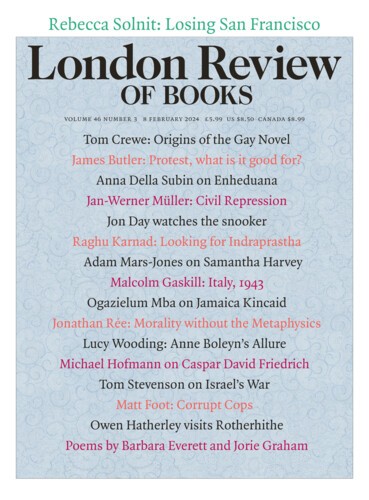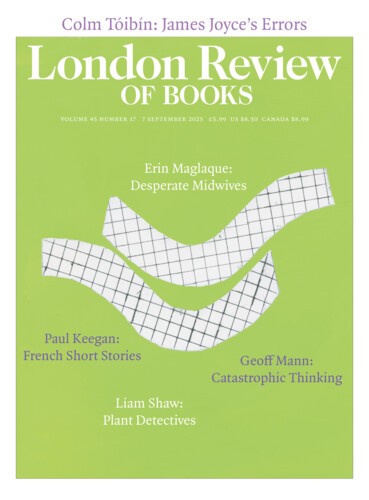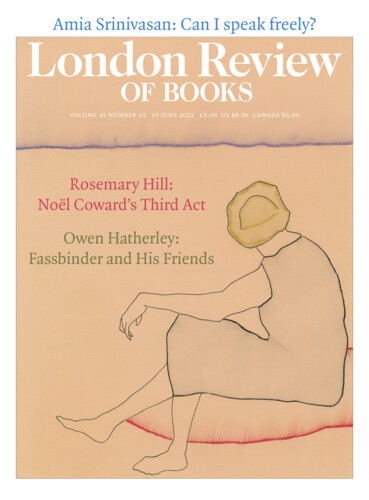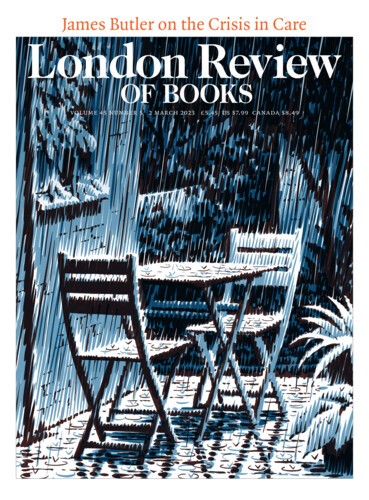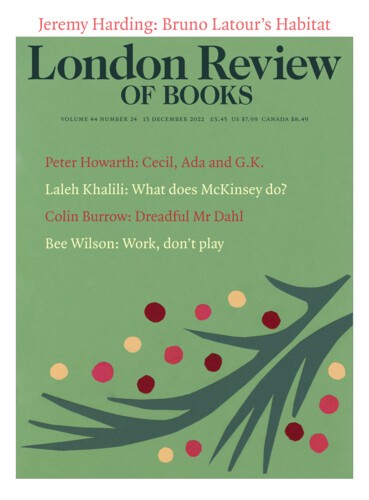At the Kunsthalle: On Caspar David Friedrich
Michael Hofmann, 8 February 2024
Sometimes I’ve thought the whole idea of pleasure in Western art has been mortgaged by the French. Or maybe the Franco-Hispanic-Italo-Anglo-Dutch. It’s their artists, their subjects, their landscapes, their models, their faces. Their trees and their hills. Their beauty and beauties, their colour and light. In the current scene a few of the bad boys – long since turned...
